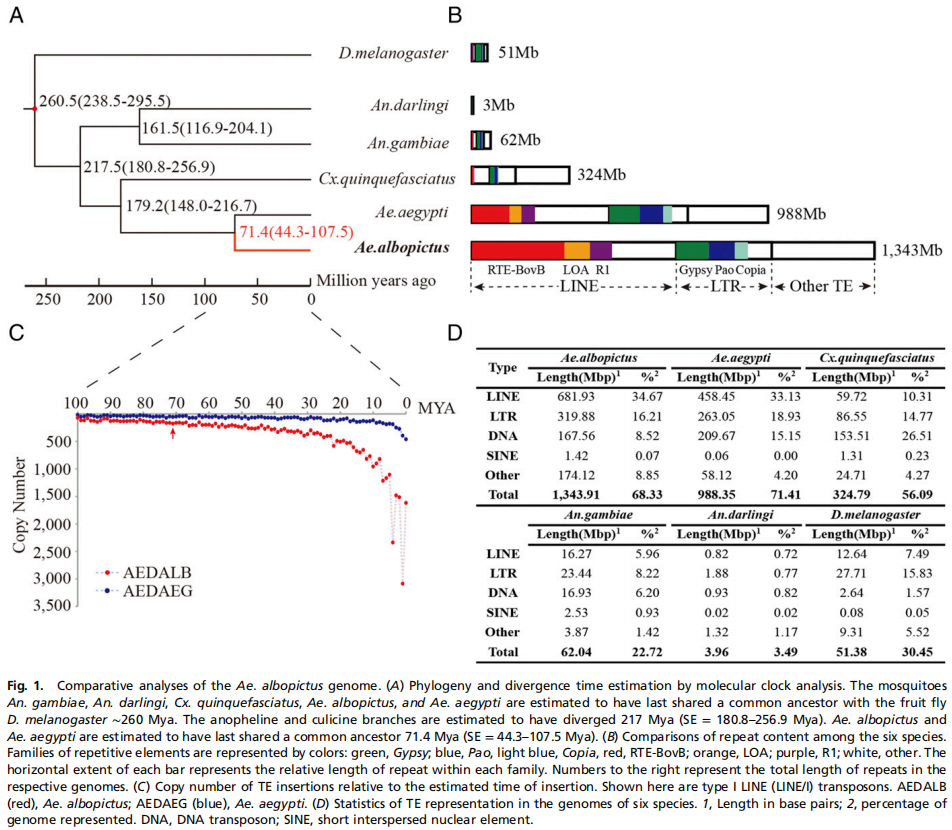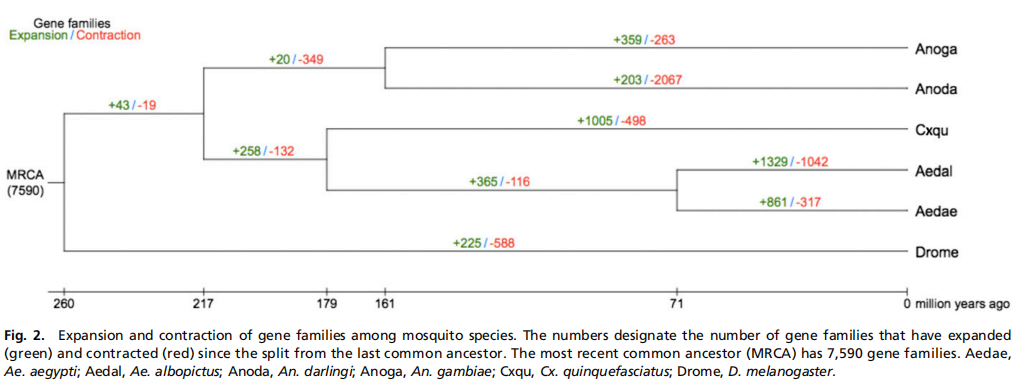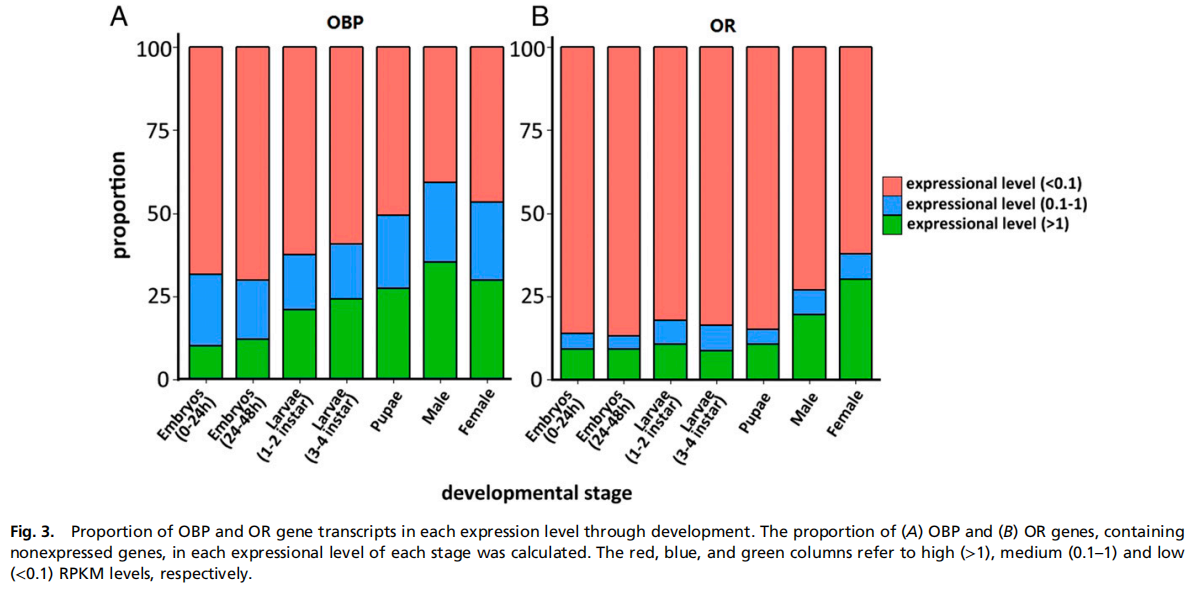Xiao-Guang Chen, Xuanting Jiang, Jinbao Gu, Meng Xu, Yang Wu, Yuhua Deng, Chi Zhang, Mariangela Bonizzoni, Wannes Dermauw, John Vontas, Peter Armbruster, Xin Huang, Yulan Yang, Hao Zhang, Weiming He, Hongjuan Peng, Yongfeng Liu, Kun Wu, Jiahua Chen, Manolis Lirakis, Pantelis Topalis, Thomas Van Leeuwen, Andrew Brantley Hall, Xiaofang Jiang, Chevon Thorpe, Rachel Lockridge Mueller, Cheng Sun, Robert Michael Waterhouse, Guiyun Yan, Zhijian Jake Tu, Xiaodong Fang, and Anthony A. James
ABSTRACT
The Asian tiger mosquito, Aedes albopictus, is a highly successful invasive species that transmits a number of human viral diseases, including dengue and Chikungunya fevers. This species has a large genome with significant population-based size variation. The com plete genome sequence was determined for the Foshan strain, an established laboratory colony derived from wild mosquitoes from southeastern China, a region within the historical range of the origin of the species. The genome comprises 1,967 Mb, the largest mosquito genome sequenced to date, and its size results principally from an abundance of repetitive DNA classes. In addition, expansions of the numbers of members in gene families involved in insecticide resistance mechanisms, diapause, sex determination, immunity, and olfaction also contribute to the larger size. Portions of integrated flavivirus-like genomes support a shared evolutionary history of as sociation of these viruses with their vector. The large genome reper tory may contribute to the adaptability and success of Ae. albopictus as an invasive species.
DOI: https://doi.org/10.1073/pnas.1516410112
PDF: https://www.pnas.org/content/pnas/112/44/E5907.full.pdf



